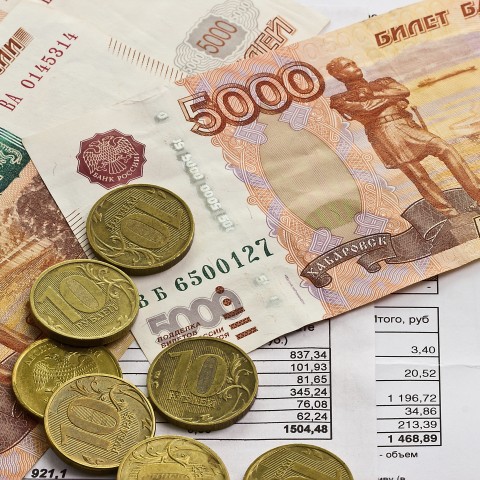
We recommend this article for those who have largely mastered the Russian language, have learned to build simple sentences on their own, and wish to improve further. If you want to not only speak in Russian but also to do so exactly like a native speaker, then you’re in the right place. The advanced Russian phrases outlined in this article will take your language skills to the next level.
It’s very difficult to become a fluent speaker in a foreign language, not needing to think about your every word or how to phrase something. The secret, however, is simple: The more you practice, the faster you’ll refine your skills.
Being able to start and maintain conversations in Russian is a major indicator that you’re getting closer to mastery, which makes it imperative to practice your Russian speaking skills early on. Writing also helps. Dip a toe in the water, and start writing academic essays or powerful resumes in Russian using the advanced words and phrases from this article.
We have prepared for you a comprehensive list of advanced Russian phrases for a variety of contexts. The best way to memorize them is to use them in your daily life as often as possible. If your goal is to sound like a native speaker, you should place particular focus on learning the common Russian idioms and expressions outlined at the end of this article.

Whether we travel for work or for pleasure, understanding one another without language barriers enhances our lives.
 Table of Contents
Table of Contents
- Common Phrases for Writing an Essay
- Power Phrases for Your Resume and Cover Letter
- Smart Phrases for Business and Meetings
- Advanced Idioms, Sayings, and Proverbs for Everyday Usage
- Conclusion
1. Common Phrases for Writing an Essay
To write a really good essay or academic paper, you’ll need to have sufficient vocabulary. Developing the language skills for writing a persuasive argument is crucial.
Here, we have listed several advanced Russian phrases and expressions for writing a great essay. This is absolutely not an exhaustive list, but it should be enough to help you practice your writing skills and compose an impressive academic paper.
- ➜ Another way to gain new vocabulary is through the free vocabulary lists on RussianPod101.com.
- ➜ We also recommend visiting our lesson Introduction to Russian Writing for a refresher on the basics.

To write a good essay, you will need to know some advanced phrases.
1.
С этой целью необходимо рассмотреть ряд ключевых вопросов.
S etoy tsel’yu neobkhodimo rassmotret’ ryad klyuchevykh voprosov.
“To that end, consideration needed to be given to a number of key issues.”
2.
Результаты недавнего исследования предоставляют убедительные доказательства в поддержку этой теории.
Rezul’taty nedavnego issledovaniya predostavlyayut ubeditel’nyye dokazatel’stva v podderzhku etoy teorii.
“The results of a recent study provide strong evidence to support this theory.”
3.
Первостепенное значение для решения поставленных нами задач имеют исследования, непосредственно направленные на изучение теоретических аспектов.
Pervostepennoye znacheniye dlya resheniya postavlennykh nami zadach imeyut issledovaniya, neposredstvenno napravlennyye na izuchenie teoreticheskih aspektov.
“Studies directly aimed at theoretical aspects are of paramount importance for finding solutions to the tasks set by us.”
4.
Сказанное заставляет полагать, что изначальное предположение было верным.
Skazannoye zastavlyayet polagat’, chto iznachal’noe predpolozhenie bylo vernym.
“This leads one to believe that the original assumption was correct.”
5.
Ещё одна ключевая вещь, о которой нужно помнить – это разнообразие.
Yeshchyo odna klyuchevaya veshch’, o kotoroy nuzhno pomnit’ – eto raznoobrazie.
“Another key thing to remember is diversity.”
6.
Многочисленные исследования показывают, что более 70% покупок совершаются импульсивно.
Mnogochislennyye issledovaniya pokazyvayut, chto bolee 70% pokupok sovershayutsya impul’sivno.
“Numerous studies show that over 70% of purchases are made on impulse.”
7.
Трудно найти однозначный ответ на этот вопрос.
Trudno nayti odnoznachnyy otvet na etot vopros.
“It is difficult to find a definite answer to this question.”
8.
Аналогичную ситуацию автор описывает в следующем эпизоде.
Analogichnuyu situatsiyu avtor opisyvayet v sleduyushchem epizode.
“The author describes a similar situation in the next episode.”
9.
Я разделяю точку зрения автора по этому вопросу.
Ya razdelyayu mneniye/tochku zreniya avtora po etomu voprosu.
“I share the author’s point of view on this matter.”
2. Power Phrases for Your Resume and Cover Letter
A resume should be short, clear, and persuasive. It is important to choose your words carefully, opting for those that best highlight your experience and competence. Effective action phrases also improve the content of a resume and its accompanying cover letter. You can use the following advanced Russian words and phrases as a reference.

A good resume will showcase your knowledge, skills, experience, expertise, and accomplishments.
1. “optimize costs” (оптимизировать расходы)
Во время работы в этой компании я оптимизировал расходы и получил экономию в размере миллиона рублей.
Vo vremya raboty v etoy kompanii ya optimiziroval raskhody i poluchil ekonomiyu v razmere milliona rubley.
“While working at this company, I optimized costs and saved a million rubles.”
2. “reduce procurement costs” (сократить затраты на закупки)
Я внедрил новую систему инвентаризации и сократил затраты на закупки на 20% в первом квартале.
Ya vnedril novuyu sistemu inventarizatsii i sokratil zatraty na zakupki na 20% v pervom kvartale.
“I implemented a new inventory system and reduced procurement costs by 20% in the first quarter.”
3. “develop a project” (разработать проект)
Я разработал проект водоочистки и решил задачу создания системы водоподготовки.
Ya razrabotal proekt vodoochistki i reshil zadachu sozdaniya sistemy vodopodgotovki.
“I developed a water purifying project and solved the challenge of creating a water treatment system.”
4. “make a schedule with tasks” (составлять график задач)
Во время моей работы я составлял график задач на 3 месяца вперёд.
Vo vremya moey raboty ya sostavlyal grafik zadach na 3 mesyatsa vperyod.
“During my work, I made a schedule with tasks three months in advance.”
5. “increase sales” (увеличить продажи)
За последний год я увеличил продажи на 5%, повысил показатели эффективности отдела.
Za posledniy god ya uvelichil prodazhi na 5%, povysil pokazateli effektivnosti otdela.
“Over the past year, I have increased sales by 5% and increased the performance indicators of the department.”
6. “head a team of” (возглавлять команду из)
В компании “Спецпроект” я возглавлял команду из трёх человек.
V kompanii “Spetsproyekt” ya vozglavlyal komandu iz tryokh chelovek.
“At the Spetsproekt company, I headed a team of three people.”
7. “design a sales scheme” (спроектировать схему продаж)
Спроектировал схему продаж.
Sproyektiroval skhemu prodazh.
“I designed a sales scheme.”
8. “be engaged” (заниматься)
На последнем проекте я занимался адаптацией новых сотрудников и успешно взаимодействовал с госорганами.
Na poslednem proyekte ya zanimalsya adaptatsiyey novykh sotrudnikov i uspeshno vzaimodeystvoval s gosorganami.
“On the last project, I was engaged in the adaptation of new employees and successfully interacted with government agencies.”
9. “prioritize” (расставлять приоритеты)
Я умею расставлять приоритеты при решении задач.
Ya umeyu rasstavlyat’ prioritety pri reshenii zadach.
“I can prioritize tasks.”
10. “critical thinking” (критическое мышление)
Также я обладаю критическим мышлением.
Takzhe ya obladayu kriticheskim myshleniyem.
“I also have critical thinking.”
11. “defend one’s point of view” (отстаивать точку зрения)
Я умею отстаивать свою точку зрения, обладаю навыками презентации и самопрезентации.
Ya umeyu otstaivat’ svoyu tochku zreniya, obladayu navykami prezentatsii i samoprezentatsii.
“I can defend my point of view; I have the skills of presentation and self-presentation.”
3. Smart Phrases for Business and Meetings
Do you plan on working or doing business in Russia? Then you’re going to need some advanced Russian vocabulary for use in business settings. Below, we have listed several advanced Russian phrases that will help you successfully speak during a business meeting and defend your point of view in a discussion.

The single most important ingredient for success is knowing how to get along with people.
1.
Первый пункт повестки дня…
Pervyy punkt povestki dnya…
“The first item on the agenda is…”
2.
Прежде чем мы продолжим, мы должны…
Prezhde chem my prodolzhim, my dolzhny…
“Before we move on, we should…”
3.
В чём заключается главная проблема?
V chyom zaklyuchayetsya glavnaya problema?
“What is the main problem?”
4.
В завершение мне бы хотелось подчеркнуть основные моменты.
V zaversheniye mne by khotelos’ podcherknut’ osnovnyye momenty.
“I’d like to finish by emphasizing the main points.”
In the corporate world, people sometimes use slang. Although most of these words are borrowed from the English language, foreigners often struggle to understand what they mean. Let’s take a look at a few of these difficult words in Russian.
- Оффер
- Мы сделали клиентам оффер и ждём их ответа.
My sdelali kliyentam offer i zhdyom ikh otveta.
“We made an offer to the clients, and now we are waiting for their answer.”
- Мы сделали клиентам оффер и ждём их ответа.
- Митинг
- У меня сейчас митинг с партнёрами, перезвони позже.
U menya seychas miting s partnyorami, perezvoni pozzhe.
“I am at a meeting with partners, call back later.”
- У меня сейчас митинг с партнёрами, перезвони позже.
- Стартап
- Наша компания выросла из небольшого стартапа.
Nasha kompaniya vyrosla iz nebol’shogo startapa.
“Our company originated from a small startup.”
- Наша компания выросла из небольшого стартапа.
- Денежные потоки
- Требую полной прозрачности денежных потоков!
Trebuyu polnoy prozrachnosti denezhnykh potokov!
“I demand full transparency of cash flow.”
- Требую полной прозрачности денежных потоков!
- Cолидная компания
Solidnaya kompaniya
“Established company”
The word тенденция is typically used in negative contexts:
- Тенденция
- Наметилась опасная тенденция.
Nametilas’ opasnaya tendentsiya.
“A dangerous trend has emerged.”
- Наметилась опасная тенденция.
- Делегировать полномочия
Delegirovat’ polnomochiya
“Delegate authority”
4. Advanced Idioms, Sayings, and Proverbs for Everyday Usage
At any level of Russian proficiency, learning idioms is very difficult. This is due to the variety of these expressions as well as their seeming strangeness.
That said, let’s learn a few useful advanced Russian idioms and proverbs. Some of them have equivalents in English, and some can be explained in simple words.
1.
Бабушка (бабка) надвое сказала.
Babushka (babka) nadvoye skazala.
Literally: “Grandma said in two.”
Meaning: “No one knows what will happen.”
2.
Метать громы и молнии
Metat’ gromy i molnii
Literally: “To fling thunder and lightning”
Meaning: “to be in a temper”
3.
Обещать золотые горы
Obeshchat’ zolotyye gory
“To promise mountains of gold”
Equivalent to: “To promise the moon”
4.
Нажать на все кнопки
Nazhat’ na vse knopki
“To press on all the buttons”
Equivalent to: “To pull strings”
5.
Называть вещи своими именами
Nazyvat’ veshchi svoimi imenami
“To call things by their names”
Equivalent to: “To call a spade a spade”
6.
Быть между молотом и наковальней
Byt’ mezhdu molotom i nakoval’ney
“To be between the sledgehammer and the anvil”
Equivalent to: “To be between a rock and a hard place”
Meaning: To be in a difficult, dangerous situation where trouble threatens from both sides
7.
Волосы становятся дыбом.
Volosy stanovyatsya dybom.
“One’s hair stands on end.”
Meaning: It refers to a sense of dread or intense fear.
8.
Как гора с плеч свалилась
Kak gora s plech svalilas’
“As if a mountain had fallen off one’s shoulders”
Equivalent to: “A load off one’s mind”
9.
Камня на камне не оставить
Kamnya na kamne ne ostavit’
“Not to leave one stone upon another stone”
Meaning: To destroy something to the ground or to criticize something/somebody mercilessly
10.
Кататься как сыр в масле
Katat’sya kak syr v masle
“To be rolling like cheese in butter”
Meaning: To live content with everything in abundance

Improve your speaking skills and learn advanced techniques in order to speak confidently.
5. Conclusion
This guide is your starting point on this exciting journey toward learning to speak Russian at an advanced level. Speaking Russian will never be as easy as speaking your native language, but with enough practice, you can still progress by leaps and bounds. The more advanced Russian phrases you learn, the more opportunities you’ll have to practice—and to impress native speakers. The more you learn, the easier it gets!
Visit RussianPod101.com to find a lot more valuable (and free) information. We have prepared plenty of materials for advanced learners: recorded conversations, vocabulary lists, grammar lessons, etc. You can even learn key Russian phrases and use our Russian Word of the Day feature to learn a new word every day.
Our Premium PLUS members also have access to our MyTeacher service, which allows you to communicate with a personal tutor. They can help you practice advanced phrases in Russian, assign you personalized exercises, and help you achieve success faster. Deepen your knowledge, expand your vocabulary, and get rid of your uncertainty about communicating with native Russian speakers!
Before you go, let us know in the comments how comfortable you feel with the advanced phrases we covered today. Are you eager to start memorizing them, or is something still a bit unclear? We look forward to hearing from you.
Enjoy learning with RussianPod101.com!



















 Table of Contents
Table of Contents
















